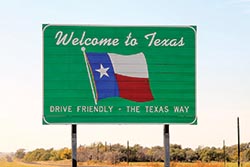By Dr. Oscar Gonzales
The Mad Scramble
With all the upheaval generated over the summer by the impending BREXIT doom, plummeting currencies, China’s economic slowdown, oil price fluctuations, and the shock of Mick Jagger becoming a father at 72, foreign investors scrambled to find safe, secure, and stable instruments in which to shelter their investments. Okay maybe not so much Mick Jagger, but that’s just scary in its own right. Thankfully, the gold medal success the U.S. and Texas had at the summer Olympic games in Brazil provided some much needed relief from the predicted global apocalypse and impending doom.
While many economies like those of Russia and China are on a path to recovery, the U.S. real estate market remains a top ranked global investment vehicle and a “fallout safe zone” for foreigner investors. The U.S. real estate market provides steady returns, consistent growth, and has a relatively nonexistent risk of a military coup or threat of government land grabs. Foreign investors purchased more than $102 billion in U.S. homes in the 12 months ending March 2016. That doesn’t include the commercial side of foreign investor transactions which is estimated at $87 billion, the highest since 2009.
What Does It Mean For Texas REALTORS®, Homebuyers and Sellers
Texas ranks third in line behind Florida and California for purchases by international buyers. What makes Texas attractive to foreign investors when compared to Florida and California is the Republic’s (a state if you’re not a Texan) affordability and its diverse and thriving economy. Personally I think it’s the bar-b-que, but I don’t have the scientific backed research to make that claim….yet. Houston has been Texas’ economic driver powered by the energy, medical, technology, and foreign trade segments. Let’s not forget that with the expansion of the Panama Canal and the Houston ship channel, Houston stands poised for explosive global economic driven growth for many years into the future.
In today’s global climate, foreign investors focus more on gaining a safe foothold in the U.S. real estate market rather than following property values or potential worth. This may result in property values artificially inflating in areas where heavy foreign investment is expected to occur, like Houston. Couple this dynamic with changes in global trade, fluctuations in currencies, and falling interest rates and we begin to see home prices artificially climb. For home sellers faint sounds of cash registers ringing in the distance begin to emerge. For buyers, the needle on the urgency meter creeps ever more closely into the red zone where they may find that competition for a home is a foreign investor.
Keeping this trend in check will be critically important to maintaining a steady and healthy real estate market. Overall, U.S. consumers remain cautious on the economy and guardedly confused about the upcoming presidential election. What may disrupt the cyclical trends to which we are accustomed are external influencers (i.e., foreign investors). Grow too fast and we equal the crazy home price spikes and demands like those demonstrated in states whose names we will not mention but whose initials are California and Florida.
Oscar Gonzales, MBA, PhD, Better Homes and Gardens, Real Estate | Gary Greene Dr. Gonzales serves in an advisory capacity to the 2016 HAR International Advisory Group.


